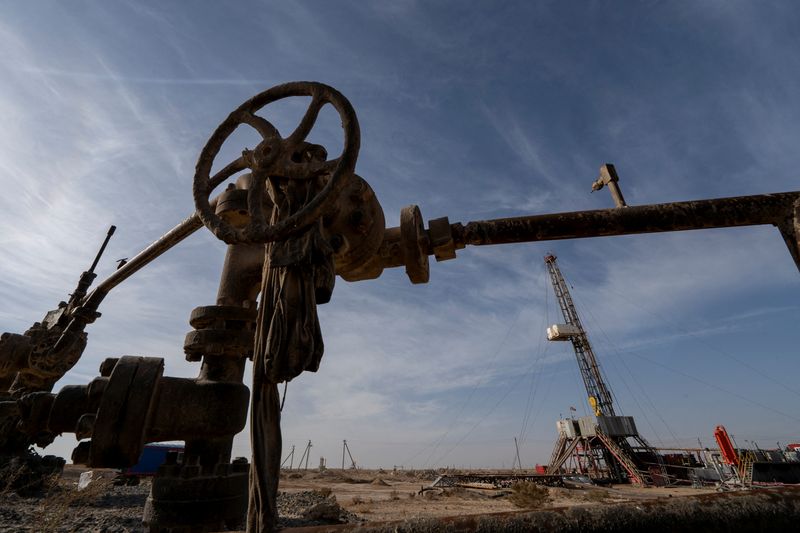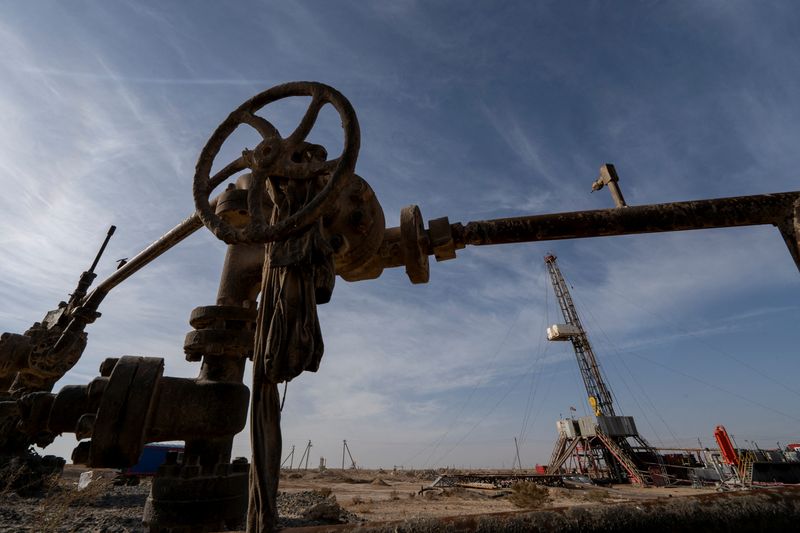
By Noah Browning
LONDON (Reuters) -Oil prices rose on Friday but were on course for a fourth successive weekly decline as signs of disappointing global fuel demand growth outweigh fears of supply disruptions on rising Mideast tensions.
Brent crude futures gained 46 cents, or 0.6%, to $79.98 a barrel by 0841 GMT, while U.S. West Texas Intermediate crude futures rose 51 cents, or 0.7%, to $76.82.
Both benchmarks have declined by more than 7% over the last four weeks in the longest streak of consecutive weekly losses this year.
Disappointing economic data from top oil importer China and a survey showing weaker manufacturing activity across Asia, Europe and the United States raised the risk of an underpowered global economic recovery that would weigh on oil consumption.
Falling manufacturing activity in China also inhibited prices, adding to concerns about demand growth after June data showed imports and refinery activity were lower than last year.
Asia’s crude oil imports in July fell to their lowest level in two years, sapped by weak demand in China and India, data from LSEG Oil Research showed.
Meanwhile OPEC+ in a meeting on Thursday kept its oil output policy unchanged including a plan to start unwinding one layer of cuts from October, which could keep supply buoyant.
“Crude futures were marginally higher early Friday … as demand concerns continued to tip the balance against supply worries stoked by a surge in Mideast geopolitical tensions,” said Vandana Hari, founder of analysis provider Vanda (NASDAQ:VNDA) Insights.
Oil investors are also cautiously watching developments in the Middle East, where the killing of senior leaders of Iran-aligned militant groups Hamas and Hezbollah stoked fears that the region could be on the brink of all-out war, threatening to disrupt supplies.

“Heightened geopolitical tensions were reflected in a rising premium for call options as traders are taking a view that prices will rise,” ANZ said, adding that Brent call option contract purchases rose hit their highest level since April.
“Oil three-month implied volatility rose to 26.6% from a low of 22.6% in mid-July.”
This post is originally published on INVESTING.



